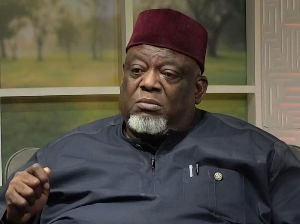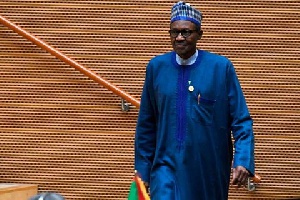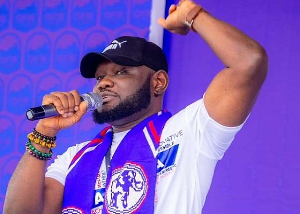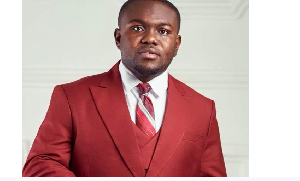Nigeria's President Muhammadu Buhari is in the eye of the storm as criticism swells around him over the level of insecurity under his watch as Nigeria's leader.
Africa's most populous country is plagued by multiple conflicts, from a jihadist insurgency in the northeast to attacks by criminal gangs carrying out mass kidnappings in the northwest and separatists targeting security forces in the southeast.
Of recent, not a day, sometimes even an hour, goes by without the press reporting a deadly attack or a kidnapping. Buhari is being criticized from all sides for his inability to curb insecurity.
On April 26, the violence reached a climax. with many killings. On social networks, some Nigerian internet users proposed to rename this day "Black Monday", while others retorted: "in Nigeria, there is no longer a day that is not a black day".
On Tuesday, the parliament asked the head of state to declare a state of emergency.
At the same time, a flurry of statements from parliamentarians, local governors and even Nobel laureate Wole Soyinka called on President Buhari to contain the violence.
"Our nation is at war. Those who have proven themselves weak and incapable must learn to swallow their pride and seek help," Soyinka urged.
While some of these criticisms are seen as opportunistic in the run-up to the 2023 presidential election, the number of attacks is such that many Nigerians have voiced concerns that wonder if the government is still in control of the country.
In the past week, at least 240 people were killed and another 50 abducted in separate attacks across the country, according to a local media count.
- Political pressure -
Criticism came from within his own camp. "We are facing the worst instability in the history of our nation," said Smart Adeyemi, a senator from the presidential party, the All Progressive Congress (APC). "This is worse than a civil war," he said.
"Political pressure is mounting on President Buhari as his government claims it is doing its best and succeeding - but the reality does not show it," said Bulama Bukarti, an analyst at the Tony Blair Institute for Global Change.
While some of these criticisms are seen as opportunistic in the run-up to the presidential election in 2023, the number of attacks is such that Nigerians are wondering if the government is still in control of the country.
In the past week, at least 240 people have been killed and another 50 abducted in separate attacks across the country, according to a local media count.
"Words and statements are not enough. We need action. I appeal to Mr. President to take the bull by the horns," said opposition figure Bukola Saraki.
In an online meeting with U.S. Secretary of State Anthony Blinken on Tuesday, Buhari said the military was "resolutely committed" to fighting insecurity and called for greater cooperation with foreign partners.
But for many, the 78-year-old president, who is regularly abroad for medical reasons, is in retreat.
"Insecurity has worsened and the president has been barely visible, this detachment has given the impression of a lack of leadership," notes security consultancy Songhai Advisory.
And yet, Buhari, a former coup general in the 1980s, was elected in 2015 on a promise to crush the jihadist rebellion in the northeast, which has killed as many as 36,000 people and displaced two million.
But six years later, the Boko Haram and Islamic State in West Africa (Iswap) groups still control vast rural areas as well as strategic roads, where they are increasing attacks and kidnappings of soldiers, civilians and NGO workers.
- A nation in blood" -
After a series of particularly deadly attacks, the president finally decided in January to replace the main army chiefs, but other than that, strong action has been lacking.
Worse, in recent months insecurity has deteriorated in the northwest, Buhari's home region. Criminal gangs that have terrorized the population for years have engaged in mass abductions of schoolchildren and students, provoking international outrage.
"The Nigerian government has shown gross incompetence and has failed in its duty to protect the lives of its citizens and to stop the increase in insecurity," the NGO Amnesty International accused Wednesday on Twitter.
While Defense Minister Bashir Magashi acknowledged on Friday "a bleeding nation", he blamed an elite ready to stir up violence for its own interests.
Other analysts, however, are calling for a step back: "We keep hearing that violence is increasing in Nigeria," says Marc-Antoine Perouse de Montclos, a political scientist specializing in armed conflicts at the French Institute for Development Research (IRD).
But whether violence is increasing or decreasing, it has "been at an unacceptable level for years," he says.
Click to view details



Africa News of Friday, 30 April 2021
Source: africanews.com
Nigeria's Buhari faces backlash over worsening insecurity under his watch
News
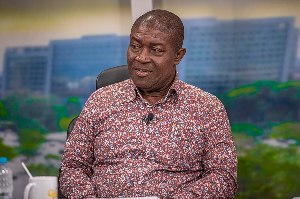
NPP’s internal research in February showed Mahama was going to win 2024 elections – Nana Akomea
Sports

Millicent Amankwah: The lady who beat Nsoatreman owner to win Sunyani West parliamentary seat
Business
